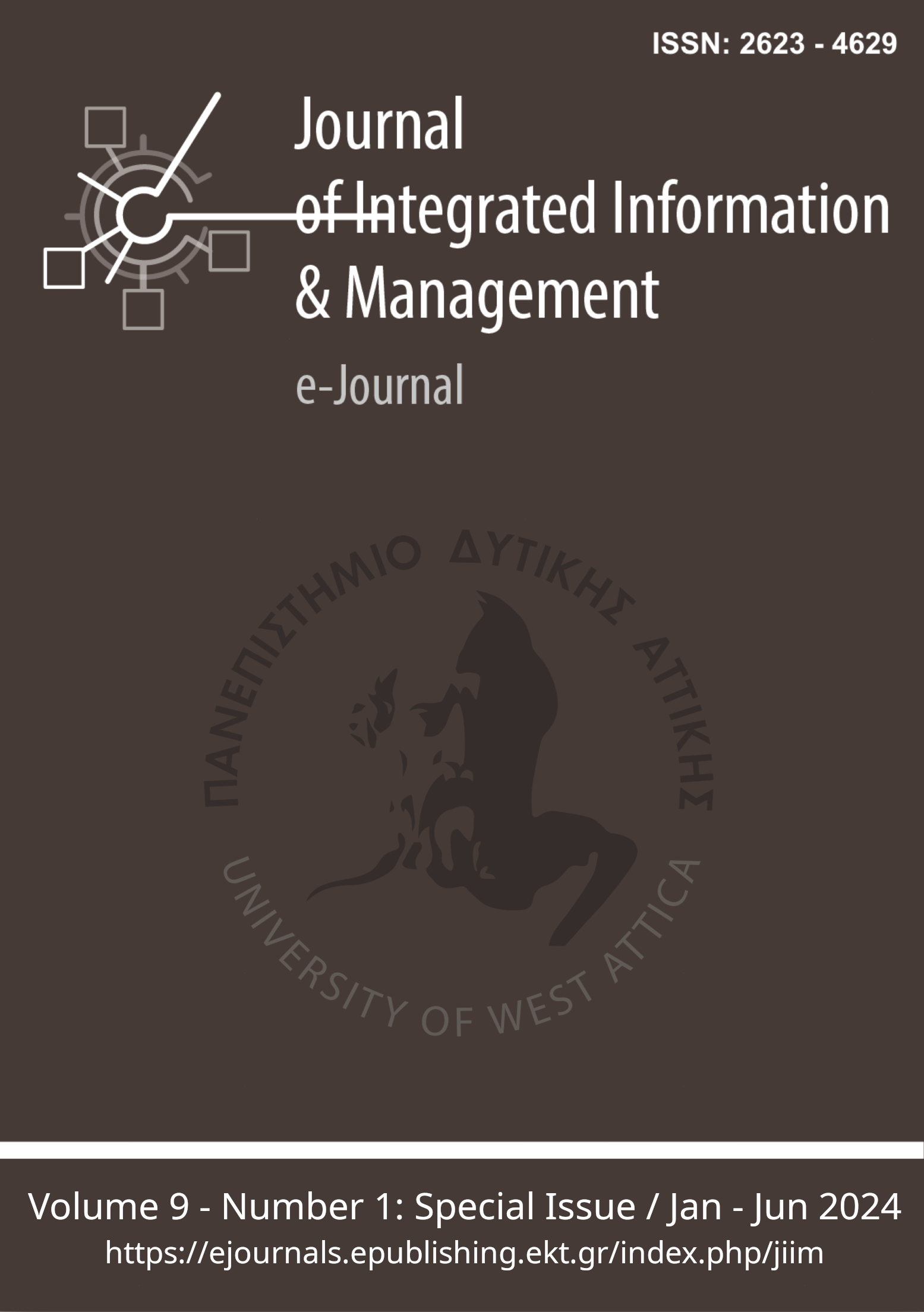Digital Cultural Heritage Management for Local Heritage Overcoming Barriers to Accessibility with Regional Digital Infrastructures

Abstract
Purpose - The paper describes the development of the “AegeanA” digital infrastructure for cultural heritage management in the region of the North Aegean, Greece, with the objective of overcoming those barriers by connecting with cultural heritage institutions across the region and supporting the wider sharing of their collections in open-access and semantically enriched ways.
Design/methodology/approach - Design and implementation of an open-source collection management system in the context of regional development. Focus is given on the components of user analysis and the development of the technological framework, especially in achieving interoperability with larger national and European digital heritage infrastructures. In addition, protocols of collaboration are established between the regionally operating institutions and the University of the Aegean.
Findings - i) Challenges in reaching out to the majority of the targeted institutions: Registration of 54 cultural institutions operating currently in the Region of the North Aegean, out of which 17 at least with digital heritage collections/artefacts, interested to take part in the project. A survey targeting regional institutions yielded 6 replies, containing insights on qualitative and quantitative data, including needs and challenges.
ii) Specific user needs identification and technical development attuned to interoperability: A range of requirements related to access, functionality, usability, and support were identified, reflecting the diverse needs of regional institutions. Technical components include the configuration and customisation of the open-source collection management system selected for developing the digital infrastructure, especially in achieving interoperability with the national cultural aggregator with the implementation of the OAI-PMH and resolution of technical issues.
Originality/value - The research addresses a significant gap in the digital transformation of cultural heritage institutions at the regional development level.
Article Details
- How to Cite
-
Ziku, M., Teneketzis, A., Alexandridis, G., Christodoulou, Y., Konstantakis, M., Drosopoulos, A., Dritsas, E., Siolas, G., Paximadis, K., Rousaki, F., & Caridakis , G. (2024). Digital Cultural Heritage Management for Local Heritage: Overcoming Barriers to Accessibility with Regional Digital Infrastructures. Journal of Integrated Information Management, 9(1), 20–29. Retrieved from https://ejournals.epublishing.ekt.gr/index.php/jiim/article/view/38585
- Section
- Research Articles

This work is licensed under a Creative Commons Attribution-NonCommercial 4.0 International License.
Copyright Notice
Authors who publish with JIIM agree to the following terms:
- Authors retain copyright and grant the journal right of first publication with the work simultaneously licensed under a Creative Commons Attribution Non-Commercial License that allows others to share the work with:
- An acknowledgment of the work's authorship and initial publication in this journal.
- Authors are permitted and encouraged to post their work online (preferably in institutional repositories or on their website) prior to and during the submission process, as it can lead to productive exchanges, as well as earlier and greater citation of published work.





